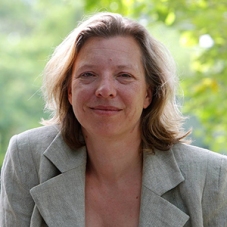Seven journalism students face a bank of screens, and with only a few minutes to go before recording starts, the atmosphere is busy and tense. This is the control room of UM News, a weekly news segment staffed by senior broadcast journalism students.
Though the students are producing their broadcast in the Don Oliver Television Studios on the first floor of the journalism building, the segment airs each week on KPAX-TV and ABC Montana.
“Are we almost ready to go?” Sean Robb asks his colleagues, who are busy cueing instruments. Robb, who is from California and will graduate next spring, is working as a producer today. Other days he is chasing stories as a reporter, in front of the camera as an anchor, or behind it as a cameraman.
“It’s really good experience to do something over and over each week,” Robb says, adding that the practice makes him more efficient at reporting and producing. The pressure to produce in UM News is intense, he says, in a way that reflects the working world of a broadcast journalist.
Associate Professor Ray Ekness, a former broadcast journalist himself, agrees that the program simulates the pressures of the working world. Students do get the buffer of two dry runs before they record the broadcast that will air on television, which is a safety net for the learning students he said. The semester in UM News includes a broadcast filmed without dry runs as well.
Silence descends on the control room as the team keys in the cameras. Today’s director is Joe Hodgson, a senior from Great Falls, Montana who spent his summer interning at Comcast Sports in San Francisco. “Go ahead and pan to the right ever so slightly,” he directs his cameraman, watching on the screens in front of him.
On Friday, the students will meet with professionals from KPAX-TV and ABC Montana for a review of the week’s broadcast. They’ll learn the tricks of the trade and how to streamline their next show.
“Go ahead and roll thunder, full sound!” Hodgson orders, and the broadcast is under way.




